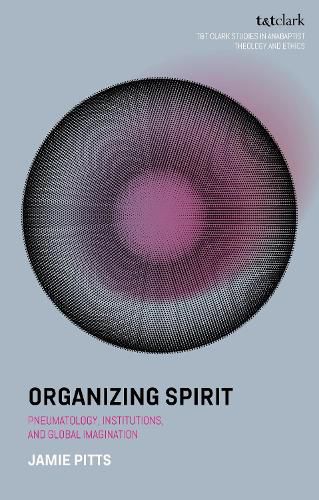Readings Newsletter
Become a Readings Member to make your shopping experience even easier.
Sign in or sign up for free!
You’re not far away from qualifying for FREE standard shipping within Australia
You’ve qualified for FREE standard shipping within Australia
The cart is loading…






Contemporary theologians tend to associate the Holy Spirit with the formation of local communities, social movements, and fluid relational networks-and not with institutions such as denominations or global church bodies. In this work, Jamie Pitts argues that this pneumatological-sociological picture misses important aspects of the Spirit's work. Pitts draws on a wide range of theological and theoretical resources to depict the Spirit as organizing the complex, dynamic, and relationally entangled structures that constitute creation. Human organizing that seeks to participate in the Spirit can take a variety of analogous structural forms, including formal organizations or institutions. Organizational participation in the Spirit is not a function of an organization's scale, mobility, or relative informality, but rather of its practical orientation toward the Spirit's goals of life, solidarity, healing, and inclusive justice. A series of case studies clarifies and extends the implications of the argument in connection to organizing for environmental, gender, sexual, and racial justice. In the final chapter, Pitts addresses the role of a political theology of the organizing Spirit in imagining organizational alternatives to the global neoliberal order.
$9.00 standard shipping within Australia
FREE standard shipping within Australia for orders over $100.00
Express & International shipping calculated at checkout
Contemporary theologians tend to associate the Holy Spirit with the formation of local communities, social movements, and fluid relational networks-and not with institutions such as denominations or global church bodies. In this work, Jamie Pitts argues that this pneumatological-sociological picture misses important aspects of the Spirit's work. Pitts draws on a wide range of theological and theoretical resources to depict the Spirit as organizing the complex, dynamic, and relationally entangled structures that constitute creation. Human organizing that seeks to participate in the Spirit can take a variety of analogous structural forms, including formal organizations or institutions. Organizational participation in the Spirit is not a function of an organization's scale, mobility, or relative informality, but rather of its practical orientation toward the Spirit's goals of life, solidarity, healing, and inclusive justice. A series of case studies clarifies and extends the implications of the argument in connection to organizing for environmental, gender, sexual, and racial justice. In the final chapter, Pitts addresses the role of a political theology of the organizing Spirit in imagining organizational alternatives to the global neoliberal order.